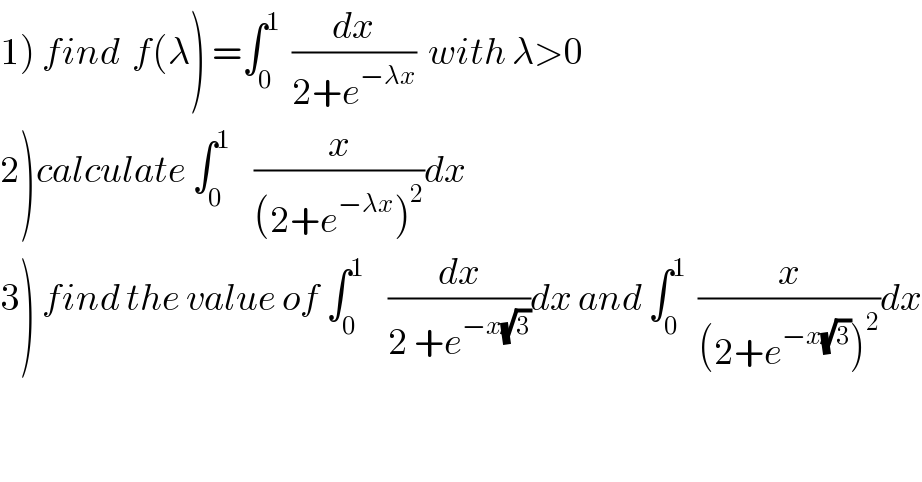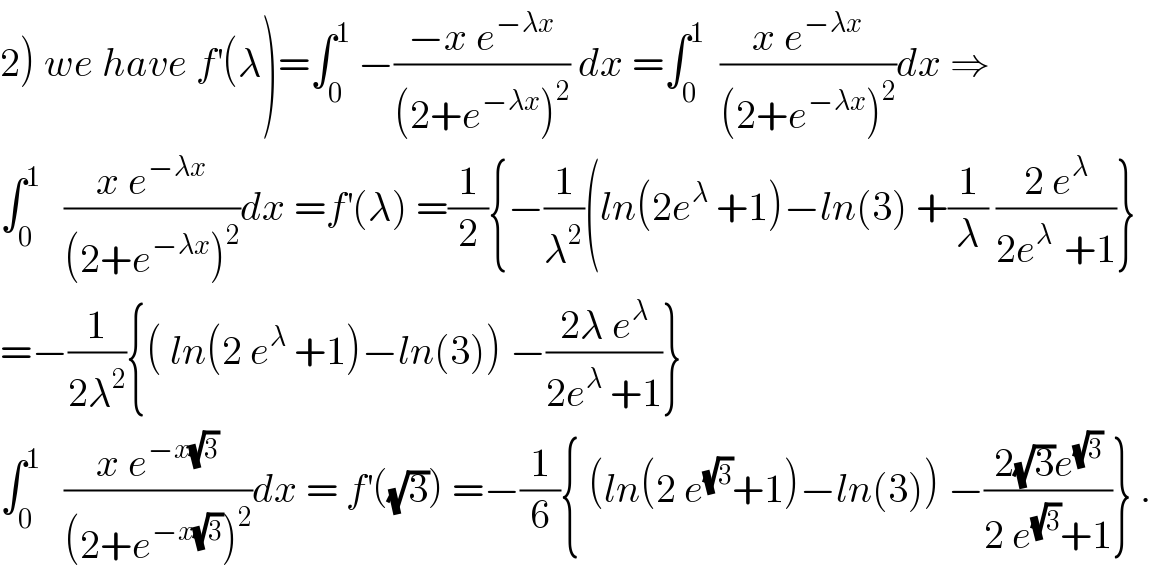
Question and Answers Forum
Question Number 48715 by Abdo msup. last updated on 27/Nov/18

Commented bymaxmathsup by imad last updated on 01/Dec/18
![1) we have f(λ)=∫_0 ^1 (dx/(2+e^(−λx) )) changement e^(λx ) =t give λx=ln(t) ⇒ x=(1/λ)ln(t) ⇒f(λ)=∫_1 ^e^λ (1/(λ(2+t^(−1) ))) (dt/t) =(1/λ) ∫_1 ^e^λ (dt/(2t +1)) =(1/(2λ))[ln(2t+1)]_1 ^e^λ = (1/(2λ)){ln(2e^λ +1)−ln(3)} ⇒ f(λ)=(1/(2λ)){ln(2 e^λ +1)−ln(3)} .](Q48987.png)
Commented bymaxmathsup by imad last updated on 01/Dec/18

Commented bymaxmathsup by imad last updated on 01/Dec/18

Commented bymaxmathsup by imad last updated on 01/Dec/18

